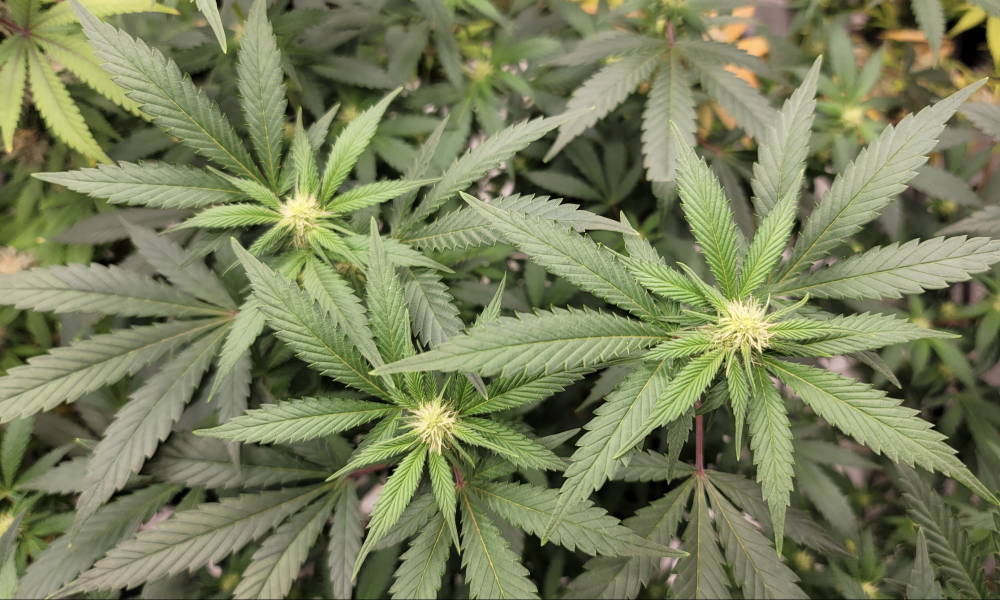The secretary of Pennsylvania’s Department of Agriculture says he’s “excited” about the possibility of his agency overseeing an adult-use marijuana market, as the governor has proposed. And he said the state is uniquely positioned to leverage the reform, in part because farmers there are “really good at growing things.”
At a hearing before the House Appropriations Committee on Thursday, lawmakers pressed Agriculture Secretary Russell Redding on the plan to have his department hold regulatory control of the industry under a proposal from Gov. Josh Shapiro (D).
Redding said officials are still “very early in those conversations, but we take the vote of confidence in what we have done around plant and animal and food experiences with regulation—and all of that’s transferable.”
“It’s very few times that you can introduce a new crop. So we see this as an opportunity for economic development in Pennsylvania,” he said. “We’re really good at growing things. This is the growing of a crop. All of that is transferable.”
“We think there’s an opportunity for both investment in those farms and those farm communities,” he added. “So we’re excited about it, and I think it’s a really good moment.”
The secretary acknowledged that the task would involve “a significant investment of people, time and space to make this come together in time.” But he said, “we can do that.”
“I’m excited about it. I don’t want to forfeit any economic opportunity for Pennsylvania agriculture,” he said.
At this stage, the conversation around the department’s involvement in marijuana regulations is mostly theoretical, based on the governor’s recent budget proposal that ambitiously calls for legalization to take effect this July, with sales starting in 2025.
Whether lawmakers will prioritize the reform and move to introduce and enact such legislation on that timeline is yet to be seen.
In any case, the agriculture secretary says he’s confident that the state could stand up such a market, with lessons learned from regulating hemp, as well as from neighboring states that have already implemented legalization.
Having his department take the regulatory lead is a “really important public signal, by the way, as to what the confidence level is,” Redding said. “And I appreciate the governor calling out that this is a potential cash crop opportunity for Ag. No other state has done that, by the way. I think that’s a really important differentiator that we have something here that you can set as an expectation for where the opportunities are.”
The governor, meanwhile, said earlier this month that he thinks officials in the state “don’t even have a choice anymore” on legalizing marijuana, and he feels there’s bipartisan momentum that lawmakers should leverage to get the job done.
With neighboring states such as Ohio enacting legalization in recent years, Shapiro said that “this really comes down to an issue now of competitiveness,” as the state is currently “losing out on 250 million bucks a year in revenue that could go to anything from economic development, education, you name it.”
A staffer in Shapiro’s office similarly remarked on the need to legalize marijuana after Ohio voters approved the reform at the ballot last November.
Also this month, Pennsylvania lawmakers convened another hearing on marijuana legalization issues—focusing on the industry perspective, with multiple stakeholders from cannabis growing, dispensing and testing businesses, as well as clinical registrants, testifying.
“From the outset, my personal goals for adult-use has been to put health and safety of our constituents first and to allow for equitable and meaningful opportunities, particularly for those harmed by the war on drugs,” Rep. Dan Frankel (D), chair of the full Health Committee who previously sponsored cannabis legalization legislation, said at the beginning of that hearing.
—
Marijuana Moment is tracking more than 1,000 cannabis, psychedelics and drug policy bills in state legislatures and Congress this year. Patreon supporters pledging at least $25/month get access to our interactive maps, charts and hearing calendar so they don’t miss any developments.
Learn more about our marijuana bill tracker and become a supporter on Patreon to get access.
—
At the subcommittee’s last cannabis meeting in December, members heard testimony and asked questions about various elements of marijuana oversight, including promoting social equity and business opportunities, laboratory testing and public versus private operation of a state-legal cannabis industry.
During the panel’s first meeting late last year, Frankel said that state-run stores are “certainly an option” he’s considering for Pennsylvania, similar to what New Hampshire Gov. Chris Sununu (R) recommended for that state last year, though a state commission later shied away from that plan.
U.S. Sen. John Fetterman (D-PA) also recently complained that Pennsylvania is being “lapped” on marijuana policy as other states in the region enact legalization.
Meanwhile, Pennsylvania lawmakers recently advanced a pair of bills meant to prevent police from charging medical cannabis patients with impaired driving without proof of intoxication.
A Republican state senator also says he will soon introduce legislation that would remove barriers under state law to medical marijuana patients carrying firearms.
In December, the governor signed a bill to allow all licensed medical marijuana grower-processors in the state to serve as retailers and sell their cannabis products directly to patients. Independent dispensaries could also start cultivating their own marijuana.
A poll released earlier this month found that about two-thirds of Pennsylvania voters in the state support enacting marijuana legalization.
Congresswoman Says Marijuana Rescheduling Could Set Full Federal Legalization Back ‘Another 50 Years’
Photo courtesy of Mike Latimer.
Read the full article here



